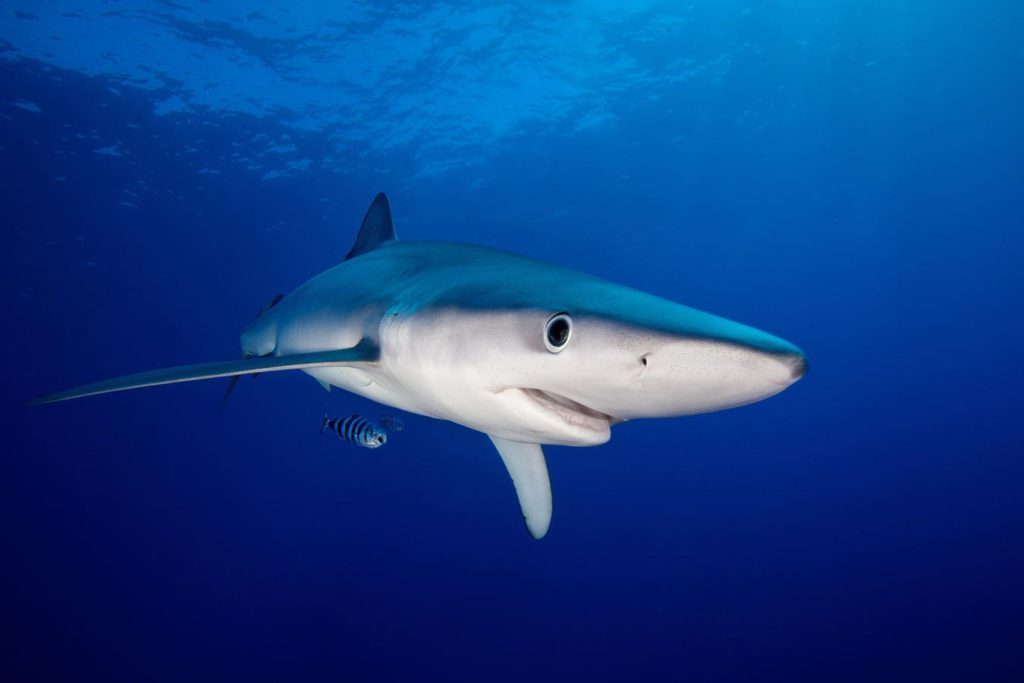A recent dramatic encounter off the coast of California between a blue shark and a pod of killer whales has left naturalists in awe. Blue sharks, known for their distinctive blue coloration, are found in temperate and tropical waters across the globe and primarily feed on small fish and squid. Despite their fearsome appearance, they pose little threat to humans and are often sought after by ecotourists. However, they face threats from overfishing and bycatch. Orcas, or killer whales, are apex predators found worldwide and are known for their complex social structures and hunting abilities. Some orcas have been observed hunting great white sharks in South Africa.
The recent footage captured by Evan Brodsky of Monterey Bay Whale Watch shows a blue shark evading five orcas that had set their sights on it. These particular orcas, known as “Louise’s family,” are regular visitors to the Monterey area and belong to a genetically and culturally unique group of orcas specializing in hunting marine mammals. This encounter between the orcas and the blue shark was described as rare and lucky by marine biologist Colleen Talty. However, similar encounters have been recorded earlier in the year off the Southern California coast, where orcas were seen feasting on sharks.
These encounters between killer whales and sharks have raised fascination and concern among marine enthusiasts and scientists. Reports of killer whales exhibiting increasingly “assertive” behavior, including targeting boats and sinking them, have sparked concern in coastal communities. The recent event off the coast of South Africa, where an orca named Starboard became the first of its kind to hunt and consume a great white shark, has underscored the awe-inspiring capabilities of these marine giants and raised questions about their evolving dietary preferences and ecological impact. This has left scientists delving into the depths of orca psychology to unravel their behaviors.
The behavior of orcas hunting sharks off the coast of California is just one piece of a larger puzzle that has left scientists scratching their heads. Killer whales have been exhibiting fascinating and sometimes concerning behaviors in recent years, prompting further study into their interactions with other marine species. These encounters highlight the complex and captivating interactions between killer whales and their fellow inhabitants of the sea. Scientists continue to monitor and study these interactions to better understand the role of killer whales in marine ecosystems and the impact of their behavior on other species.













